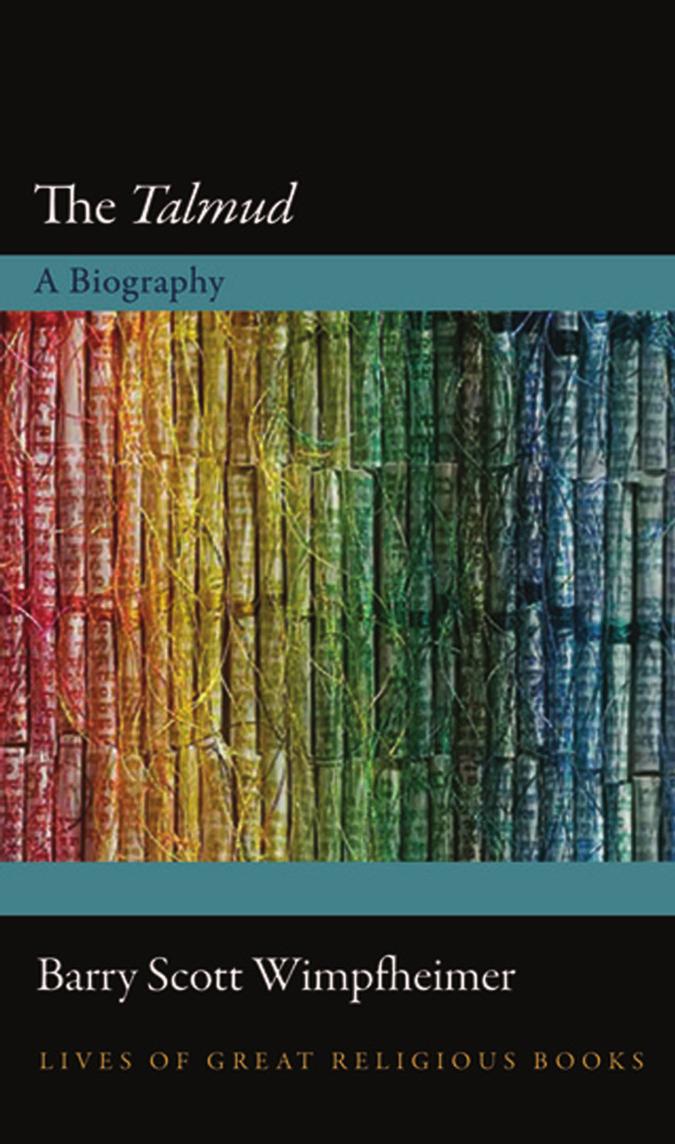The Talmud: A Biography by Barry Scott Wimpfheimer

Author:Barry Scott Wimpfheimer [Wimpfheimer, Barry Scott]
Language: eng
Format: epub, pdf
Tags: Religion, Judaism, Talmud, History, Sacred Writings
ISBN: 9780691161846
Google: lmqYDwAAQBAJ
Publisher: Princeton University Press
Published: 2018-04-17T00:58:08.550000+00:00
Jewish Philosophy
It can be difficult to properly apprehend the long-ago impact of Greek philosophy on theories of nature, the function of the world, and the roles of human beings and divinities, respectively, within the world. Not only did the thought of Plato and Aristotle stake out essential positions on these issues, the existence of the framework of philosophy threw down the gauntlet to those who would, as Abrahamic religions did, frame the questions differently.
The tension between philosophy and monotheism did not bear its first literary fruits in the medieval period. The first-century Egyptian Jew, Philo, penned an entire corpus that fuses Platonic ways of thinking with the Hebrew Bible. But this Greek corpus was not preserved by Jews and was unavailable to medieval Jews as a model for the fusion of Talmudic aggadah and Greek philosophy. Though Greek culture profoundly influenced the rabbis who produced rabbinic literature, these rabbis had no awareness of Philo and took little interest in Greek philosophy.
Despite the rabbis’ noninterest, by the time of the rabbis there were two dominant strains within Greek philosophy. Aristotle’s strain promotes the deistic idea that no divine entity affects the daily operation of the natural world. Neoplatonism opposes some of the deism of this strain, and posits the existence of an original fundamental source out of which all things emanate, and towards which they should be productively oriented. Jewish philosophy derives primarily from the Aristotelian strain and Kabbalah from the Neoplatonic.
By the end of the period of the Geonim, Greek thought had become intellectually unavoidable. Within cosmopolitan Babylonia, clerics of Judaism, Christianity, and Islam joined forces to strategize about how their respective traditions would accommodate the truths that had been philosophically established. The Kalam dialogues of Abbasid-era Babylonia produced various theological responses to the clash between Greek thought and scriptural monotheism.41 Most prominent among these was the Mutazilite school of Islamic theology, whose platform insisted that the divine was singular and unified, that free will was possible despite divine omniscience, and that scriptural knowledge was valuable because of its confirmation through reason.42 The first Jewish work of systematic theology, Saadiah Gaon’s (d. 942) Sefer Emunot V’Deot [book of beliefs and opinions], is a work that plays Mutazilite theology in a Jewish key.43
Maimonides’ philosophical work, Guide of the Perplexed, builds on Saadiah’s precedent. This original philosophical work adopts a fusion of Neoplatonism and Aristotelianism while critiquing the Mutazilite notion of reason.44 It is evident from the Guide that Maimonides had full command of the Talmud’s aggadah. In the introduction to his commentary on the Guide, Maimonides indicates an intention to eventually produce a full-blown commentary on the aggadah; no such commentary survives.
The Guide produces truly radical innovations regarding basic Jewish beliefs. Maimonides characterizes the biblical religious mode of sacrifices as a divine concession to human weakness, understands the divine on a deistic model that does not allow for personal relationships with people, and considers only philosophers to have the capacity for achieving religious ideals such as the afterlife and love of God.
Download
The Talmud: A Biography by Barry Scott Wimpfheimer.pdf
This site does not store any files on its server. We only index and link to content provided by other sites. Please contact the content providers to delete copyright contents if any and email us, we'll remove relevant links or contents immediately.
| Hebrew Bible (Old Testament) | Talmud |
| Torah | Zohar |
The Power of Habit by Charles Duhigg(3139)
Man's Search for Meaning by Viktor E. Frankl(2673)
Mckeown, Greg - Essentialism: The Disciplined Pursuit of Less by Mckeown Greg(2443)
MOSES THE EGYPTIAN by Jan Assmann(2417)
Devil, The by Almond Philip C(2332)
The Complete Dead Sea Scrolls in English (7th Edition) (Penguin Classics) by Geza Vermes(2283)
Unbound by Arlene Stein(2277)
I Capture the Castle by Dodie Smith(2038)
Schindler's Ark by Thomas Keneally(1890)
The Invisible Wall by Harry Bernstein(1808)
The Gnostic Gospel of St. Thomas by Tau Malachi(1799)
The Bible Doesn't Say That by Dr. Joel M. Hoffman(1680)
The Secret Doctrine of the Kabbalah by Leonora Leet(1612)
Political Theology by Carl Schmitt(1586)
The Jewish State by Theodor Herzl(1536)
A History of the Jews by Max I. Dimont(1533)
The Dead Sea Scrolls Bible by Martin G. Abegg(1519)
The Book of Separation by Tova Mirvis(1490)
Oy!: The Ultimate Book of Jewish Jokes by David Minkoff(1374)
